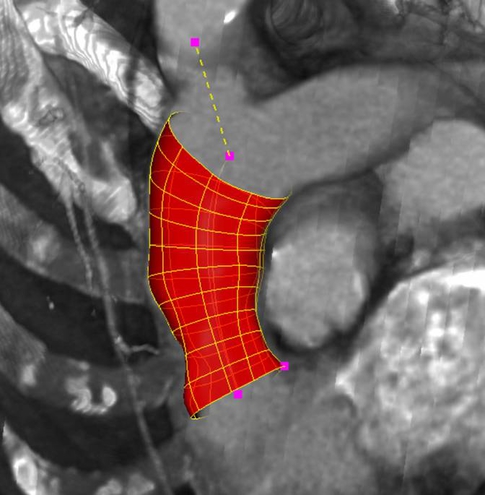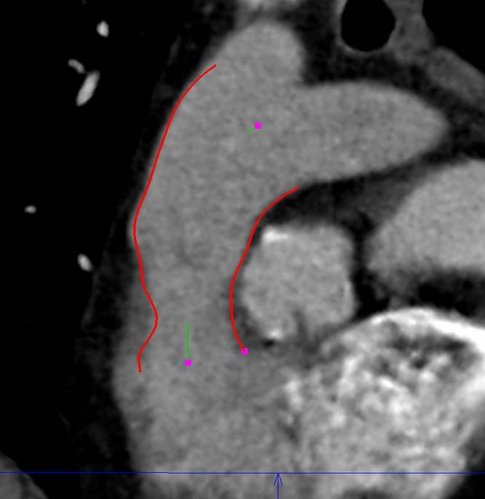
Dipl.-Inf. Dime Vitanovski
Alumnus of the Pattern Recognition Lab of the Friedrich-Alexander-Universität Erlangen-Nürnberg
Personalized Pulmonary Trunk Modeling for Intervention Planning and Valve Assessment Estimated from CT Data
Pulmonary valve disease affects a significant portion of the global population and often occurs in conjunction with other heart dysfunctions. Emerging interventional methods enable percutaneous pulmonary valve implantation, which constitute an alternative to open heart surgery. As minimal invasive procedures become common practice, imaging and non-invasive assessment techniques turn into key clinical tools. In this paper, we propose a novel approach for intervention planning as well as morphological and functional quantification of the pulmonary trunk and valve. An abstraction of the anatomic structures is represented through a four-dimensional, physiological model able to capture large pathological variation. A hierarchical estimation, based on robust learning methods, is applied to identify the patient-specific model parameters from volumetric CT scans. The algorithm involves detection of piecewise affine parameters, fast centre-line computation and local surface delineation. The estimated personalized model enables for efficient and precise quantification of function and morphology. This ability may have impact on the assessment and surgical interventions of the pulmonary valve and trunk. Experiments performed on 50 cardiac computer tomography sequences demonstrated the average speed of 90 seconds and accuracy of 1.6mm for the proposed approach. An initial clinical validation yielded a significant correlation between model-based and expert measurements. To the best of our knowledge this is the first dynamic model of the pulmonary trunk and right ventricle outflow track estimated from CT data.






